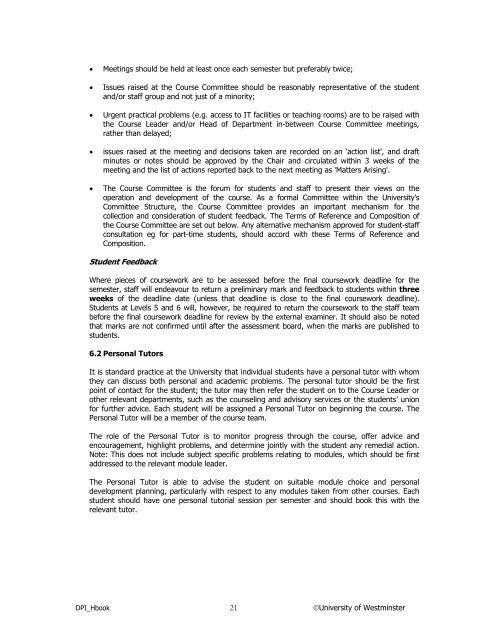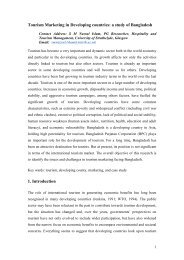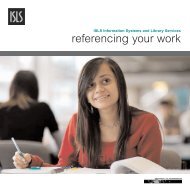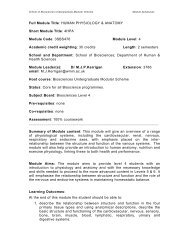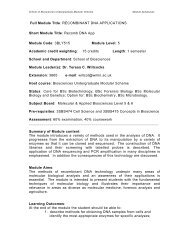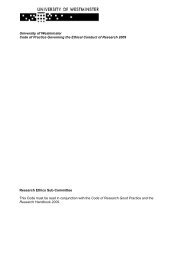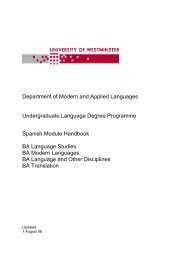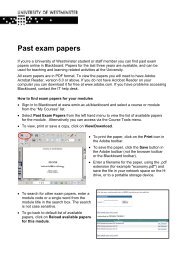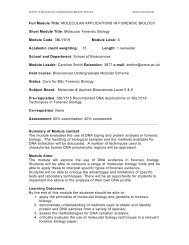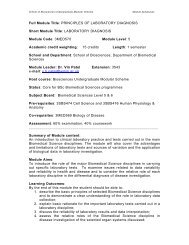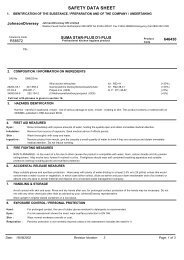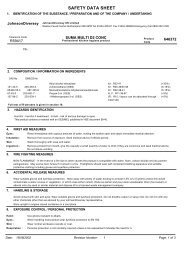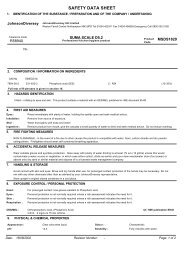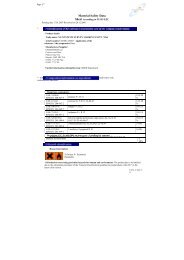CONTENTS 1. Introduction 1.1 Course Outline 1 1.2 Introduction ...
CONTENTS 1. Introduction 1.1 Course Outline 1 1.2 Introduction ...
CONTENTS 1. Introduction 1.1 Course Outline 1 1.2 Introduction ...
Create successful ePaper yourself
Turn your PDF publications into a flip-book with our unique Google optimized e-Paper software.
• Meetings should be held at least once each semester but preferably twice;<br />
• Issues raised at the <strong>Course</strong> Committee should be reasonably representative of the student<br />
and/or staff group and not just of a minority;<br />
• Urgent practical problems (e.g. access to IT facilities or teaching rooms) are to be raised with<br />
the <strong>Course</strong> Leader and/or Head of Department in-between <strong>Course</strong> Committee meetings,<br />
rather than delayed;<br />
• issues raised at the meeting and decisions taken are recorded on an ‘action list', and draft<br />
minutes or notes should be approved by the Chair and circulated within 3 weeks of the<br />
meeting and the list of actions reported back to the next meeting as ‘Matters Arising'.<br />
• The <strong>Course</strong> Committee is the forum for students and staff to present their views on the<br />
operation and development of the course. As a formal Committee within the University's<br />
Committee Structure, the <strong>Course</strong> Committee provides an important mechanism for the<br />
collection and consideration of student feedback. The Terms of Reference and Composition of<br />
the <strong>Course</strong> Committee are set out below. Any alternative mechanism approved for student-staff<br />
consultation eg for part-time students, should accord with these Terms of Reference and<br />
Composition.<br />
Student Feedback<br />
Where pieces of coursework are to be assessed before the final coursework deadline for the<br />
semester, staff will endeavour to return a preliminary mark and feedback to students within three<br />
weeks of the deadline date (unless that deadline is close to the final coursework deadline).<br />
Students at Levels 5 and 6 will, however, be required to return the coursework to the staff team<br />
before the final coursework deadline for review by the external examiner. It should also be noted<br />
that marks are not confirmed until after the assessment board, when the marks are published to<br />
students.<br />
6.2 Personal Tutors<br />
It is standard practice at the University that individual students have a personal tutor with whom<br />
they can discuss both personal and academic problems. The personal tutor should be the first<br />
point of contact for the student; the tutor may then refer the student on to the <strong>Course</strong> Leader or<br />
other relevant departments, such as the counseling and advisory services or the students’ union<br />
for further advice. Each student will be assigned a Personal Tutor on beginning the course. The<br />
Personal Tutor will be a member of the course team.<br />
The role of the Personal Tutor is to monitor progress through the course, offer advice and<br />
encouragement, highlight problems, and determine jointly with the student any remedial action.<br />
Note: This does not include subject specific problems relating to modules, which should be first<br />
addressed to the relevant module leader.<br />
The Personal Tutor is able to advise the student on suitable module choice and personal<br />
development planning, particularly with respect to any modules taken from other courses. Each<br />
student should have one personal tutorial session per semester and should book this with the<br />
relevant tutor.<br />
DPI_Hbook 21 ©University of Westminster


